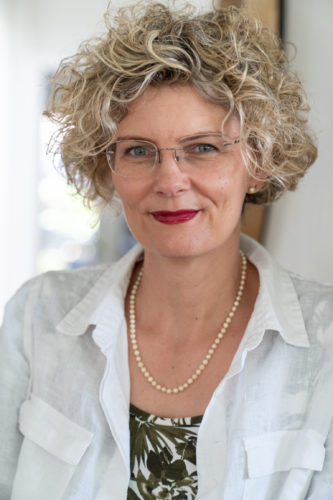 Stefanie King from The Organising Project services the Lower Hunter Valley, Lake Macquarie, Northern End of the Central Coast and Newcastle in New South Wales. She kindly agreed to share her wisdom and experience about being an organiser.
Stefanie King from The Organising Project services the Lower Hunter Valley, Lake Macquarie, Northern End of the Central Coast and Newcastle in New South Wales. She kindly agreed to share her wisdom and experience about being an organiser.
Tell me Stefanie, who do you work with? And who is your ideal client?
I work with families with neurodivergent family members and kids (for example ASD or AD(H)D), clients with physical disabilities (injuries, MS, elderly), clients with mental health challenges like PTSD, time poor professionals, and clients who want to downsize or right size.
My ideal client is the one who is ready to tackle the challenge and open for new ideas on how to address the obstacles. I want to work with the client so they learn how to maintain their space, so I will not organise someone’s house while they are at work or on holidays, and I will not just get a bin and dispose of their stuff.
What drew you to the organising industry and how long have you been in it?
I started in 2018 and have been organising full time since 2020. I worked in the waste industry for eight years, partly as Waste Officer for my local council and partly as Business Consultant. Aside from that I was Project Manager and Engineering Manager in the manufacturing industry for another eight years. While at a conference for Waste Educators I accidentally ended up in a workshop by a professional organiser about clutter in people’s homes and I was intrigued when I realised that the order I grew up with was by no means the norm and many people had difficulties to keep their homes tidy.
What was the pivotal moment for you starting out as an organiser?
It was that encounter at the conference. But then realising I could have my own business and actually earn a living from it, sold me completely as it enabled me to structure my work hours more flexibly and have more time for my school-aged kids.
What’s your favourite thing about organising?
It is never boring, everyone has a story to tell and honestly, my client’s happy face at the end of the session is priceless
To what do you attribute your success as an organiser?
I am a jack of all trades. I have an unusual and varied work experience and education in many disciplines and lived family experience with mental health challenges and ASD. This allows me to find common ground with my clients quite easily, which in turn helps when tackling the organising challenge. Organising is fun for me, not work; it energises me. And so I have no trouble holding their space when the going gets tough. I also continuously keep honing my skills by listening to podcasts, doing training courses and reading about both organising, neurodiversity and mental health challenges to better understand my clients.
What would you say to someone just starting out as an organiser?
There is so much…
- Ask yourself honestly, what do you really like about organising and focus on that niche. Work with experienced organisers to start with, it will definitely help you work out what you DO NOT want to do. I prefer working with clients on functional spaces. Pinterest perfect pantries are nice to look at, but most of my clients are far from that picture perfect world of stylish containers and rainbow sorting. Equally, I would find it very difficult to work exclusively with clients that live in squalor.
- Organising is most likely a tiny part of what you will be doing in your job. You will listen to people’s life stories, provide mental health support, be their confidant, be their hands and muscle, sometimes be their brain, all while trying to make their life a little bit better. So, learn as much as you can, not just about organising but also about the challenges that your clients may be facing. There is a reason they are disorganised, and you will be confronted with it at some point, so be prepared. Be humble, lower your expectations and work at their pace.
- Make sure you have someone to debrief after a difficult session.
- If you want to work for yourself, do not underestimate the time it takes for admin, marketing, tax returns, and professional development. It is not easy, but worth it. But it is not for everyone.
What is one habit that helps your life run smoothly?
I was born with a spreadsheet in my head, so I have lists and plans. Mind you, sometimes the plan may be to not have a plan! I see plans as a guide and remain open for opportunities and flexible to change. To me, smooth does not equate to rigid following of routines.
What is one thing people may not know about you, that you’re willing to divulge?
I have become an accidental guppy breeder and sell the little ones when I have too many.
Is there anything else you think people should know?
It is never too late to dream a new dream and reinvent yourself!
That’s a lot of great advice there, Stefanie. Thank you!



